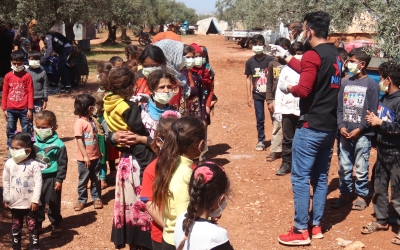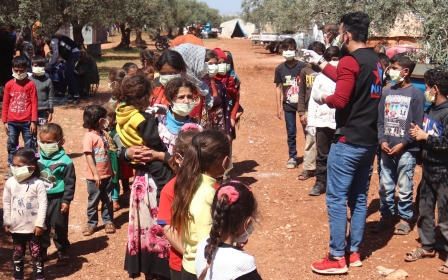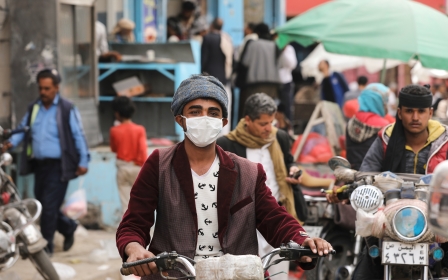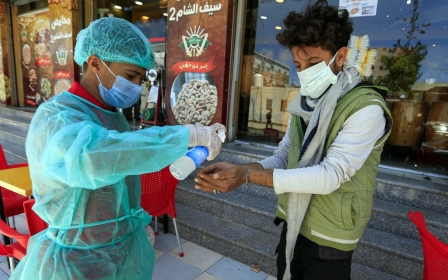Lack of funds forces UN to close life-saving aid programmes in Yemen

The United Nations said on Thursday that it was being forced to close down several humanitarian programmes in Yemen amid a a funding shortage, leaving the impoverished country in dire straits as it attempts to slow the spread of the coronavirus.
"Of the UN's 41 major programmes, 31 will start closing down in the next few weeks if we cannot secure additional funds," the UN's emergency relief coordinator Mark Lowcock told the Security Council.
"This means we will have to start eliminating many of the activities that may offer Yemenis their best chance to avoid Covid-19."
He added that the United Nations Children's Fund (UNICEF) will have to stop immediate assistance for families displaced by conflict or natural disasters.
This means that "up to 1 million displaced people will not receive critical supplies", including hygiene kits to help protect against both the coronavirus and cholera.
Nutrition programmes for Yemeni children will also be cut, according to Lowcock, affecting 260,000 severely malnourished children and 2 million other children who are moderately malnourished in the war-torn country.
Eighty percent of health services provided by the UN aid response to the coronavirus may stop by the end of April.
"We need these teams more than ever, not just to keep on top of Covid-19, but to contain a growing risk that cholera will rebound as the rainy season restarts."
UN agencies estimate they need more than $900m to make it through the end of July.
On Tuesday, US President Donald Trump announced that Washington would be cutting $400m in aid to the World Health Organisation, leaving organisations fearing a shortfall will exacerbate the humanitarian crisis in the war-ravaged country.
Yemen has been devastated by years of war and lacks much of the vital infrastructure that is needed to tackle the virus.
A UN report released on Wednesday said that more than 14 million people in Yemen lack access to basic hand-washing facilities.
Ceasefire agreement
Also on Thursday, the UN's Yemen envoy Martin Griffiths said he expected the opposing parties to adhere to agreements on a nationwide ceasefire "in the immediate future", as well as to adopt key economic and humanitarian measures and to resume political talks.
Griffiths said he has been negotiating with the parties on the texts, details, and wording of the agreements for the past two weeks.
"We expect them to agree on and formally adopt these agreements in the immediate future," he told the UN Security Council.
"The decisions now needed from both the two parties are of existential importance for the future of their country," Griffiths said, speaking from Amman.
The economic and humanitarian measures to be agreed upon include the release of prisoners and detainees, opening Sanaa airport, paying civil servant salaries, opening access roads and ensuring entry at Hodeidah ports for ships carrying commodities that will help in the fight against Covid-19.
"The conversations we have had with the two parties, and our consultations with the Saudi-led coalition … are continuous, detailed and constructive," Griffith said.
Middle East Eye delivers independent and unrivalled coverage and analysis of the Middle East, North Africa and beyond. To learn more about republishing this content and the associated fees, please fill out this form. More about MEE can be found here.





